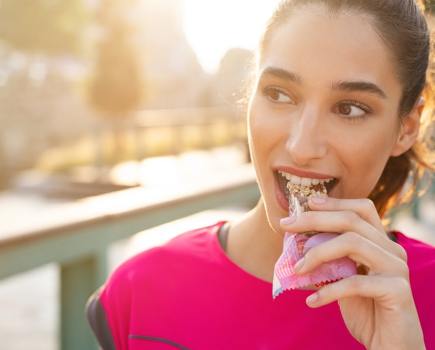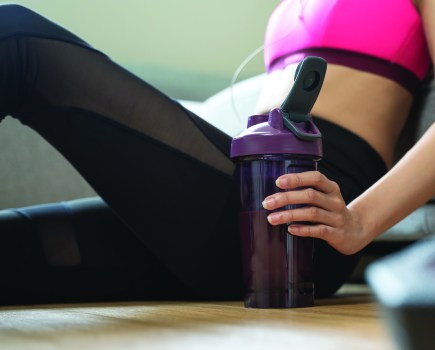Should you eat before a workout or wait until afterwards? Working out what to eat and when to eat it can be a complicated affair, so we’ve asked personal trainer and nutritional advisor Jessica Becker at Virgin Active to help us break down the how-to of pre and post-workout nutrition. This will help you to get the most out of every sweat session, no matter what your goal.
Words: Lucy Miller
What to eat before a workout
To eat, or not to eat? That is the question. Exercising before eating might make you feel lighter on your toes (and it might help you to avoid running to the bathroom mid-workout) but equally, eating ensures you’ve got enough fuel in the tank to make it through your workout. ‘It’s all down to personal preference,’ explains Becker, ‘and what you’re trying to achieve.’
‘It also depends on what time of day you like to work out,’ she adds. ‘If you’re an early riser and like to exercise before 7am, then its best to go for water and a coffee, or even a pre-workout powder to help give you an energy boost before you start. But if you like to get moving later in the day, a meal consisting of fats and protein (such as a chicken and avocado salad, or smoked salmon and scrambled eggs) two hours before exercise is ideal. This will help to ensure your blood sugar levels are stabilised during the workout so you don’t feel dizzy.’
‘Carbohydrate foods such as bread, pasta or oats aren’t essential pre-workout fuel, as you will most likely already have adequate amounts of glycogen (energy) stored to get you through a lengthy gym workout or hour-long run,’ says Becker. ‘But if you feel like you need a little pick-me-up, an apple with nut butter (peanut, almond – whichever you like) is always a good go-to for an energy boost, and it’s easy to digest too. This is ideal when eaten 20 to 60 minutes before your workout.’
What to eat after a workout
Refuelling and recovering are the twin goals of post-workout eating. Carbohydrates replenish the glycogen stores (stored carbohydrates) you’ve burned off, while protein helps to rebuild your muscles. ‘Aim for a ratio of 3:1 carbohydrates-to-protein, and always try to take advantage of the “window of recovery” which is within an hour after you finish your workout,’ says Becker.
Some great foods to put on your plate include protein options such as fish, meat or cheese, mixed with some complex carbs like whole grains, oats, quinoa, or fruit and vegetables. These will all help to replenish your muscles after a tough workout, rather than having them broken down for energy, which happens when your body doesn’t have enough fuel and instead starts to use precious, metabolism-boosting muscle tissue.
‘Don’t neglect fluid either,’ adds Becker. ‘You’ll need to replace everything you’ve sweated out at the gym with fluids such as water, a glass of milk, or a post-workout shake which is designed to help you get electrolytes into the body quickly, helping you to recover.’
How much protein do you need?
The best way to accommodate your body’s need for protein is to multiply your weight in kilograms by a number between 0.8 and two, depending on how active you are (those who are highly active or who wish to build more muscle should generally consume more protein).
‘Multiply your weight by 0.8 if you’re mostly sedentary, and by two if you’re consistently doing weight training,’ explains Becker. ‘Getting enough protein will encourage your body to repair its cells and make new ones. Protein is also extremely important for gym goers because it supports bone density whilst helping manage sugar cravings and boosting the metabolism. Here are just a few high protein options to choose from: eggs, almonds, chicken breast, nut butters, cottage cheese, Greek yogurt, lentils, quinoa’
How do I know which shake to take?
‘When choosing a post-workout shake, go for one that’s got the fewest artificial ingredients and sweeteners (the fewer ingredients, the better),’ advises Becker. ‘There’s also no better or worse choice when it comes to vegan and whey options – it just depends on a few personal factors. If you can tolerate lactose, for instance, then whey protein may be more beneficial from a muscle gain perspective. However, vegan powders are great as they have a higher nutrient density and, if you’ re lactose intolerant, they’re a good choice.’
Here are a few off-the-shelf post-workout drinks to consider…
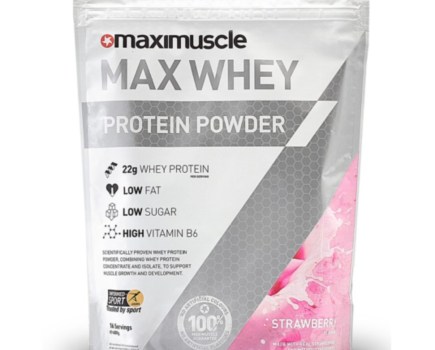
Maximuscle Max Whey, £2
With four flavours to choose from and made with real fruit, this post-workout shake contains 23g of protein per serving and BCAAS too.
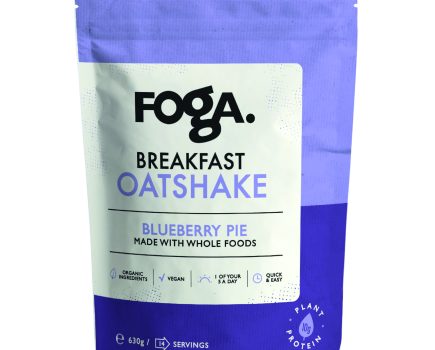
FOGA Oatshake, £29.99
Available in Blueberry Pie, Strawberry & Raspberry, and Peanut Butter & Berries, and made from freeze-dried whole fruit and organic oats, this shake provides at least 10g of pea protein and 5g of prebiotic fibre.
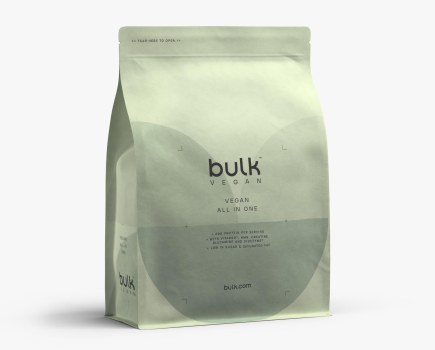
Bulk VEGAN ALL-IN-ONE, £49.99
Packed with 29g of protein and 19g of carbohydrates per 60g serving, it’s also soya and gluten free. Available in a range of delicious, low-sugar flavours, including Chocolate Peanut, and Coconut and Lime.
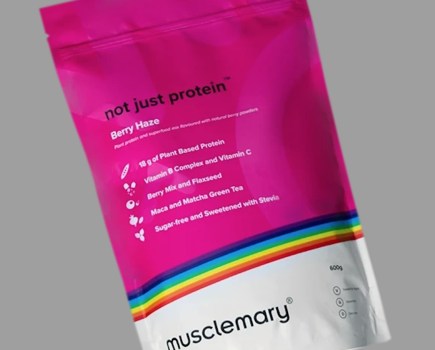
Musclemary, £34
Made from premium pea and white hemp protein, this powder also has Japanese organic matcha green tea, plus it contains glucomannin and CLA which helps encourage fat reduction.




